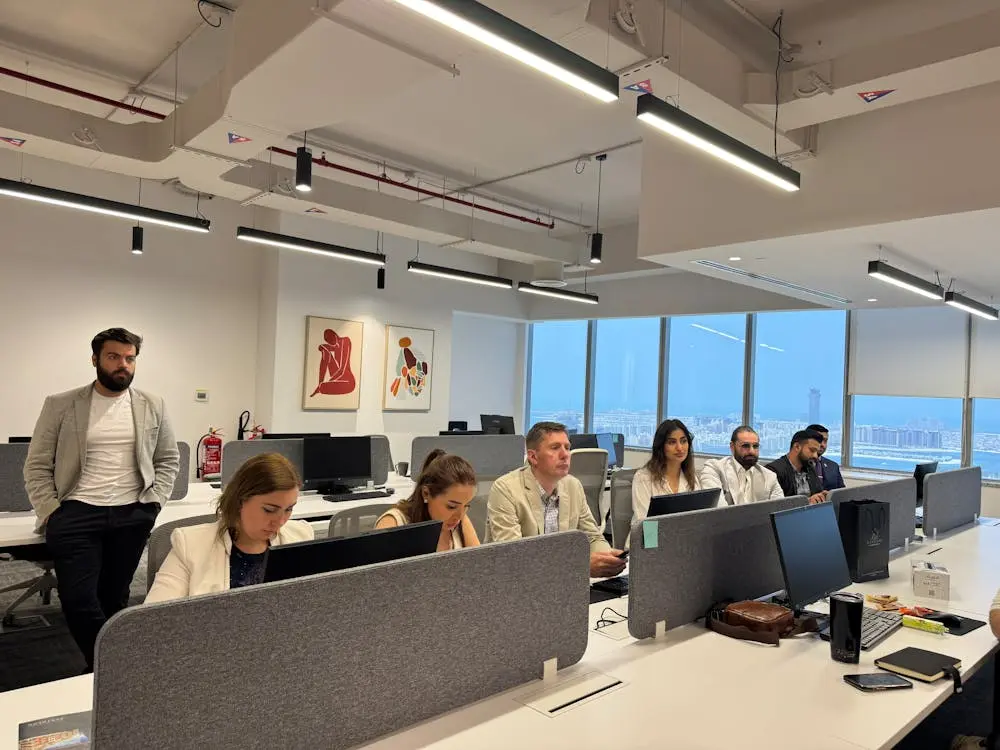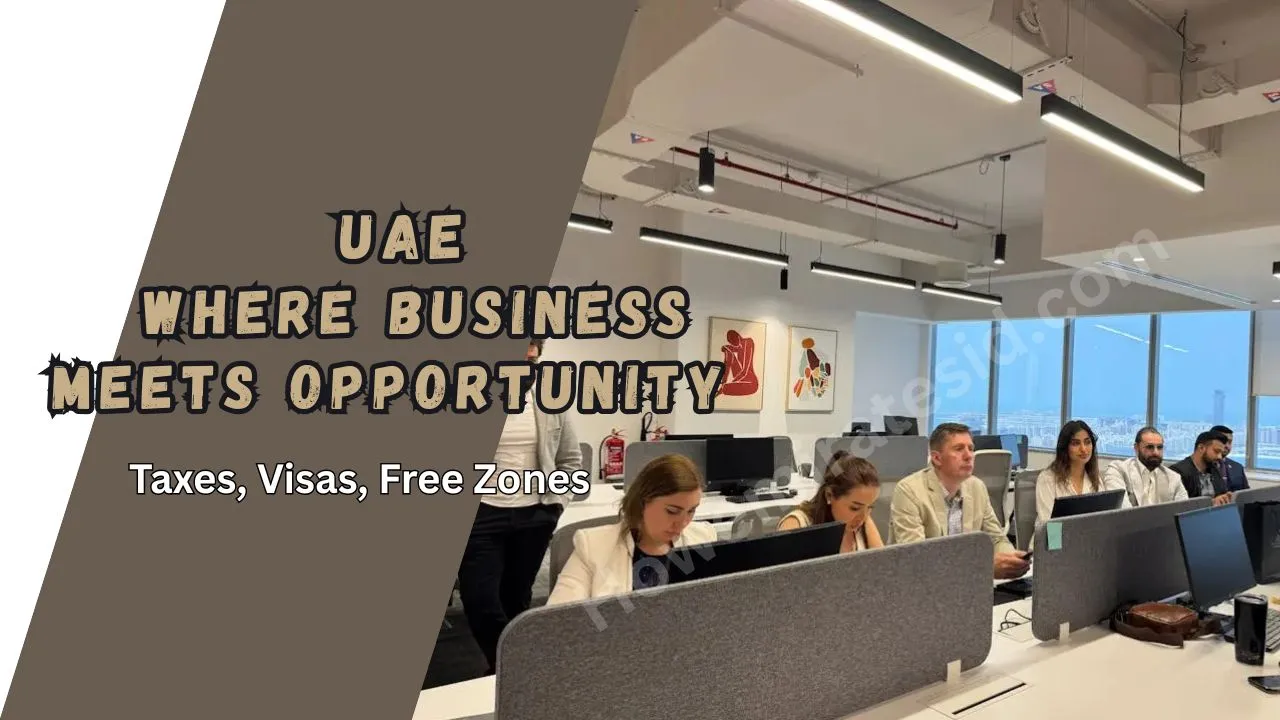UAE: Where Business Meets Opportunity | Taxes, Visas, Free Zones
The UAE moves fast, but not in a messy way—more like a well-run shop that opens early and gets things done. Dubai hums with people who build, ship, code, and close deals. Abu Dhabi plays the long game with capital and big projects. This guide keeps things simple: what works here, how taxes really look, where a license fits, how visas line up, and which sectors actually have traction. No fluff, just useful steps.

Why the UAE Works for Business (At a Glance)
Location helps. The country sits between Asia, Europe, and Africa, so flights sync with client hours and cargo routes stay short. Dubai’s ports and airports move fast, which trims downtime and keeps schedules tight.
Basics feel steady. Streets are safe, utilities hold, and internet speeds support real work. English runs through meetings and paperwork, so cross-border tasks feel lighter. For clear rules and grounded steps on structure and licensing, teams often turn to Qlegal Consultancy for legal guidance that fits local practice.
Paperwork moved online. Licensing, renewals, payments, even parts of the visa process—most of it sits on clean dashboards with alerts. Fewer counters. Fewer loops. More time for actual business.
Taxes in Plain English
Salaries don’t face personal income tax in the UAE. That’s the part newcomers notice. Day-to-day spending still meets a 5% VAT on many goods and services, so budgets should allow for it.
Companies pay corporate tax on profits under federal rules. The standard rate kicks in above a set threshold, and each firm files by its financial year. Free zones have their own frameworks, but activity that reaches the mainland can change how taxes apply. Keep books tidy, file on time, and use clear invoices. Simple habits beat last-minute fixes.
Other charges appear in specific moments. Excise tax covers items like tobacco and sugary drinks. Customs duty often lands at 5% on imports. Property transfers include local fees that differ across emirates. When in doubt, use trusted legal information and seek practical legal advice before signing long agreements.
Mainland or Free Zone (Quick Comparison)
Start with the goal. If a company plans to sell across the UAE, pitch government work, or open retail in Dubai, the mainland route usually fits. It allows trade anywhere in the country. Expect a real office lease, approvals tied to the activity, and standard accounting and tax filings.
Free zones suit export-heavy firms, holding companies, and service providers that work mostly outside the mainland. Each zone has its own regulator and process. A free zone company that wants to sell on the mainland typically appoints a local distributor or sets up a branch under the right license.
Licensing shapes everything. Activities sit in clear buckets—commercial, professional, industrial—and that list controls what a company can do. If the plan touches more than one area, stack the right permissions early. For tricky wording or contract points, find a lawyer who knows local rules, or even book a lawyer consultation with a neutral advisor.

Related: Modern Architecture Meets Technology: How Elevators Are Getting Smarter 2025?
People and Visas (Simple Overview)
A company license opens the door to people. Hiring starts after setup because work visas link to the licensed entity. Owners use investor or partner visas tied to their shares. Employees follow a steady path: offer letter, entry permit, medicals, Emirates ID biometrics, and the residence stamp.
Families come next. After the main applicant finishes, dependents can join under family sponsorship. Schools, leases, and bank accounts move more easily once IDs and visas land, so plan the order—license, visa, family—and book each step in that rhythm. For special cases or regulated roles, get legal guidance early and, if needed, find a lawyer with business immigration experience.
Sectors to Watch
- Logistics and trade: Ports and airports link three regions in a straight, practical way. Freight moves fast; customs stays predictable.
- Finance and fintech: Capital flows through established hubs; new players test payment tools, remittance apps, and compliance tech. Keep filings tight and lean on legal information for regulated steps.
- Tech and digital services: Cloud work, AI tools, and product design teams serve clients across the Gulf and beyond. Talent mixes well, so new teams spin up quickly.
- Tourism and creative work: Events, hospitality, fashion, food, and content studios run year-round calendars. Visiting brands often build local partnerships in a week.
- Energy and sustainability: Legacy energy meets clean-tech pilots—solar, storage, water efficiency, waste recovery—with room to test at an industrial scale.
Conclusion
The UAE rewards clear plans and steady execution. Choose the structure first—mainland or free zone—then handle licensing, banking, and visas in order. Register for VAT when required, reconcile monthly, and use legal advice before big commitments. With practical steps, solid records, and the right support, a company can build here with confidence and keep momentum week after week.







